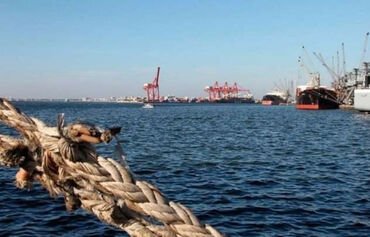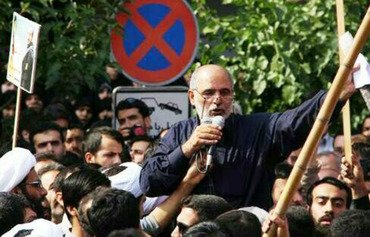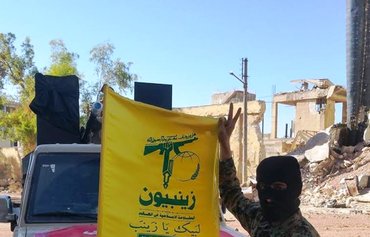By depleting national resources to finance regional armed groups, Iran's Islamic Revolutionary Guard Corps (IRGC) is acting against the interests of both the Iranian people and neighbouring countries, experts told Diyaruna.
The IRGC has been executing its plans in the region using all available means, at the expense of the security and resources of the Iranian and Syrian people, said al-Sharq Centre for Regional and Strategic Studies researcher Fathi al-Sayed.
In order to advance the Iranian regime's agenda, the IRGC is ignoring the interest of the Iranian people, he told Diyaruna, as its expansionist plans require that it support and fund affiliate groups in regional countries at great expense.
This is achieved by "depleting the resources of the Iranian economy", he said, and has had "a negative economic and social impact on the Iranian people, as evidenced by the waves of protest that we have seen erupt".
Demonstrators across the country from December 28th to January 1st protested the dire state of the economy, with many specifically opposing the Iranian regime's use of the country's resources to support its proxies and surrogates such as the Lebanese Hizbullah and the Syrian regime.
'Corruption in every sense'
Since its inception, the IRGC has sought to leverage Iran's economy to ensure the flow of funding to its projects and expansionist plans, said researcher Sheyar Turko, who specialises in the IRGC and its funding methods.
These began with the establishment of Lebanon's Hizbullah, he told Diyaruna, which at the time carried out dozens of assassinations and bombings targeting prominent figures and known IRGC opponents.
"Numerous companies were established to control all production aspects in Iran, and they are directly affiliated with the IRGC and not the Iranian government," Turko said.
Among them is engineering firm Khatam al-Anbiya, the IRGC’s main financial arm, he said.
The IRGC also established a number of other companies in various fields that serve to tighten its grip on all areas of the economy, he added.
These include Sepanir Oil and Gas Engineering, Telecommunication Company of Iran (TCI), Ansar Bank, Bank Saderat Iran, the Mobin Trust Consortium (Etemad-e-Mobin), Shahid Rajaee Professional Group and SADRA - Iran Maritime Industrial Company.
"The IRGC’s control of Iran's economic resources in this manner is corruption in every sense of the word," Turko said.
'Similar to the mafia'
The IRGC engages in actions similar to those of the international mafia, said Abbas Mohammadi, who lectures at Tehran University’s faculty of law.
To this end, the IRGC has formed armed groups that are "directly affiliated with it and obey it blindly", he told Diyaruna.
All IRGC-affiliated militias and groups owe their allegiance to al-Wali al-Faqih (Guardian of the Jurist, Ayatollah Khamenei), who is the top and sole authority over the IRGC, he said.
"In order to achieve its expansion in the region, the criminal gangs formed by the IRGC carried out hundreds of sordid operations, including military attacks, killings and assassinations," Mohammadi said.
In Syria, specifically, the IRGC implemented its plan to expand on the ground through groups it brought in from abroad, from countries such as Iraq, Lebanon and Afghanistan, he said.
It also is forming new Syrian militias, as IRGC officers have been actively recruiting fighters for brigade 313, which is based in the south-western town of Azraa in Daraa province and takes its orders from Iran.
These developments show the IRGC is "prolonging the war, manipulating internal politics and frustrating all attempts to end the bloody conflict in Syria", Mohammadi said.
By doing this, the IRGC aims to clear the way for it to continue implementing its project for expansion and taking control of strategic areas, he added.

![A member of Iran's Islamic Revolutionary Guard Corps takes position near Tadmor (Palmyra) in Syria, where two IRGC officers were killed in late 2016. [Photo courtesy of Sheyar Turko]](/cnmi_am/images/2018/03/12/11836-Syria-IRGC-fighter-600_384.jpg)






